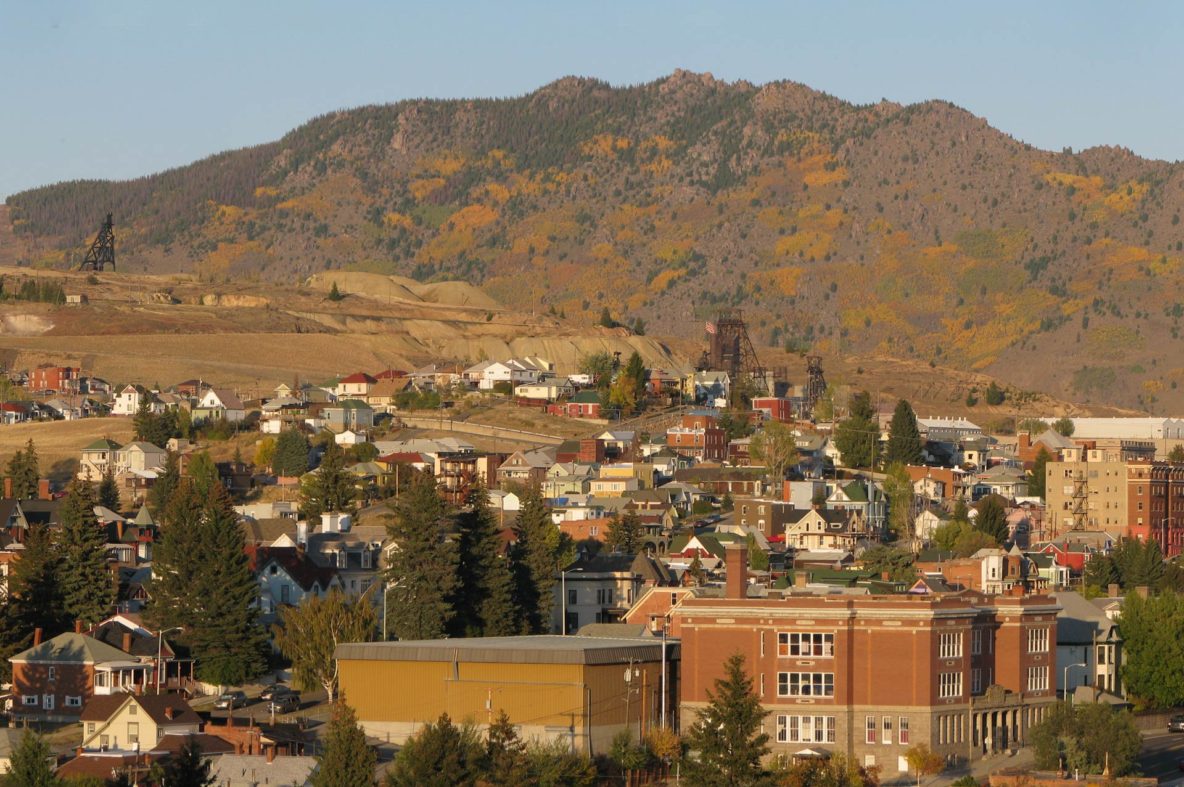“Where do we need church plants?” is one of the most frequent questions asked of our MTSBC Church Planting Team. The next few articles will highlight some of these priorities for church planting in our state. This month, we will focus on Butte – Butte, America, that is.
Butte is Montana’s fifth largest city. There are some 34,000 residents in Silver Bow County, which has combined its municipal government with the city of Butte. Nestled just below the Continental Divide in the Summit Valley, it is a place of amazing diversity surrounded by the natural beauty of the Rocky Mountains. Small ranches and ranchettes give way to an historic downtown with stone buildings that look like something from the bygone days of a big city in the east. Ethnic foods and diverse traditions are admired. Community pride is evident in the many parades, special days, and festivals that are celebrated. Butte is also a transportation hub, lying at the junction of Interstates 15 and 90.
Butte is home of The Montana Tech of the University of Montana, formerly the Montana State School of Mines, which boasts a student enrollment of around 2,700. Today, Montana Tech is recognized among America’s best values in undergraduate education. They are deploying graduates around the globe in many well-paid roles.
Butte has a fascinating past. Once one of the largest cities of the Rocky Mountain west in the late 19th and early 20th centuries, it is claimed to be the “richest hill on earth” due to the extensive copper ore deposits. Likened to be a small Pittsburg, Butte became an anomaly of an urban center in the middle of the mountains and prairies of the west. Butte is a mining town that been through the boom, the bust, the restoration, and now historic preservation. Butte is known for its labor unions and their legacy is still expressed today in the local culture. Mining is their celebrated history and continues to greatly influence the present and future of Butte. There is still an active mine extracting molybdenum, which is a strategic mineral used in steel alloys.
Today’s Butte is a stabilizing town dealing with the environmental impacts of the mining, the economic impacts of the loss of mining, and trying to find its way with the resources that remain. Butte, like many other old towns, continues to transition into a more economically diverse community while it retains its multi-ethnic flavor and personality. Butte is solidly progressive politically, greatly influenced by its labor union past. Butte is also known for its many festivals. One such festival is held on St. Patrick’s Day and thousands of people attend. Uniquely Butte, there was a tattoo artist that won the world record for the most tattoos in single day.
The people are the greatest resource of Butte and their determination to revitalize the city is evident. It is a bastion of tough people, hard-rock miners, or descendants of those, from all over the country and world. Many are the people who survived the demise of profitable copper mining that finally came to an end in the early 1980’s. Butte is also becoming a new frontier and place to start for some who come to open a new business or be trained to work somewhere else in the world.
Why are new churches needed in Butte? At the time of this writing, Butte has two Southern Baptist affiliated churches for its 34,000 residents. The two churches reported a total combined average worship attendance of less than 1% of the population. There is no MTSBC church south of the interstate. This is an area that is both residential and business diverse.
There is a strong, historical Catholic influence and heritage, mainly due to the traditions of the immigrant workers who were attracted to the mining industry and its opportunities. The opportunities for spiritual influence in Butte are great. Only 54% of residents claim any religious affiliation; two-thirds of them purport to be Catholic.
The new Butte is emerging and optimistic. The Chamber of Commerce has labeled their recent campaign “Butte Elevated.” The city is changing and showing new life. Would God be calling you to be used as an instrument of Gospel-influence in a place that has formerly been known as a wild place, a rough place, and a place to engage with evil; a place that is yet to see a great move of God?
You can find this and other descriptions of church planting needs on the mtsbc.org website.

